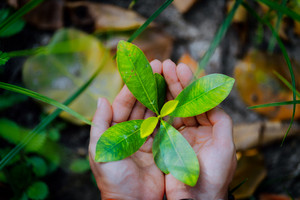1. Understanding the Concept of Zero Waste
Living a zero waste lifestyle is all about reducing your environmental impact and minimizing the amount of trash you produce. It involves making conscious choices in every aspect of your life, from what you eat to how you dispose of waste. By adopting sustainable practices, you can help protect our planet for future generations while also saving money on unnecessary purchases.
2. Reduce, Reuse and Recycle: The Three R’s
The key to living a zero waste lifestyle lies in following the three R’s – reduce, reuse, and recycle. By implementing these principles into your daily routine, you can significantly decrease the amount of waste you generate. Here are some ways to do it:
Reduce: Start by evaluating your consumption habits and identifying areas where you can cut back. For example, instead of buying bottled water, invest in a reusable water bottle. You should also consider buying secondhand items or borrowing them from friends when possible.
Reuse: Once you have reduced your consumption, focus on finding creative ways to reuse items that would otherwise end up in the trash. This could include using old jars as storage containers or repurposing fabric scraps into handkerchiefs.
Recycle: Finally, make sure to properly sort and recycle any materials that cannot be reused. Check with your local recycling center to see which materials they accept and ensure that you are disposing of waste correctly.
3. Say No to Single-Use Plastics
Single-use plastics are one of the biggest contributors to pollution and climate change. By saying no to plastic bags, straws, and other disposable items, you can greatly reduce your carbon footprint. Instead, opt for reusable alternatives such as cloth bags, metal straws, or even just say no to single use items altogether.

4. Choose Sustainable Products
When shopping for household goods, choose products made from sustainable materials like bamboo, hemp, or organic cotton. Avoid purchasing items made from nonrenewable resources like plastic or Styrofoam. Additionally, look for products with minimal packaging or those that come in refillable containers.
5. Composting and Gardening
Composting is an excellent way to reduce food waste and create nutrient-rich soil for gardening. By composting your food scraps and yard waste, you can create a natural fertilizer that will enrich your soil and promote healthier plant growth. In addition to composting, consider starting a small vegetable garden to further reduce your reliance on store-bought produce.


